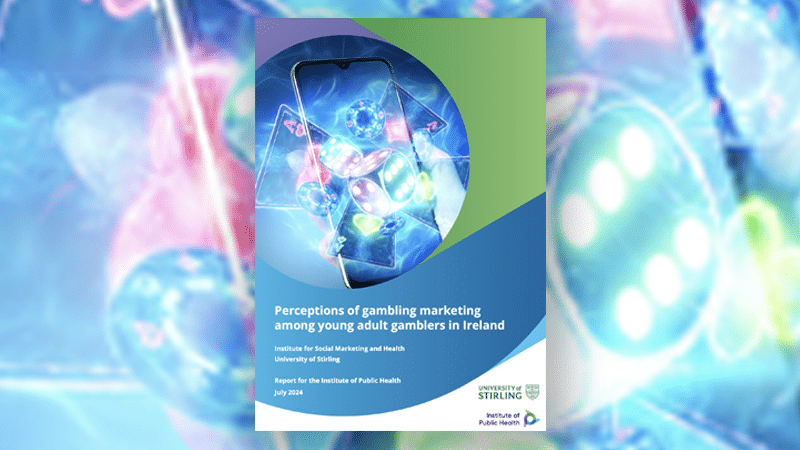Young adult gamblers in the Republic of Ireland report high exposure to gambling advertising, a new report has shown.
Research published by the Institute of Public Health found that 18 to 34-year-old gamblers encountered gambling marketing on a near daily basis.
In a qualitative study, the Institute for Social Marketing and Health at the University of Stirling conducted one-to-one interviews with 16 young adult gamblers in Ireland.
Ubiquitous
One participant said: “Everywhere I can think of I think I’ve probably seen gambling adverts”.
Another commented: “You see it on football jerseys, all over sports websites, when you’re watching football, when you’re watching horse racing, the first ad after it all is Skybet or Paddy Power”.
A third observed: “Where do I not see it? Social media, all over the telly, especially the likes if you’re watching YouTube, every ad is nearly about a gambling company.”
Interviewees held mixed views on a total gambling marketing ban, but there was general support for a ‘whistle-to-whistle’ ban on gambling marketing in sport to “help better safeguard young people” and “ultimately reduce gambling in Ireland”.
Normalising gambling
The study authors concluded: “The high awareness of gambling adverts, offers and promotions, and the fact that gambling marketing was a topic of discussion for most participants, suggests it has become a regular part of people’s lives.”
Dr Crawford Moodie, who led the research, warned that “routine exposure only helps to normalise gambling”.
The Gambling Regulation Bill – which is under consideration by the Seanad – would establish a national regulator, create a social impact fund to address problem gambling, and ban advertising across television, radio, and on-demand services between 5:30am and 9pm.
Strict measures
Research published by the Economic and Social Research Institute (ESRI) in June found a strong link between exposure to gambling in childhood and problem gambling in adulthood.
In an ESRI survey of 1,663 adults in Ireland, two-in-three (64 per cent) reported having gambled before turning 18.
Based on the study findings that under 18s who gambled “are almost twice as likely” to be problem gamblers, researchers called for “regulatory measures to minimise the exposure of children to gambling”.
Football clubs putting profit before people with gambling ads
Ex-Scotland manager: ‘The shame and lies of gambling convinced me to finally stop’
Man who started betting at 8 years old gambled away over £100k


